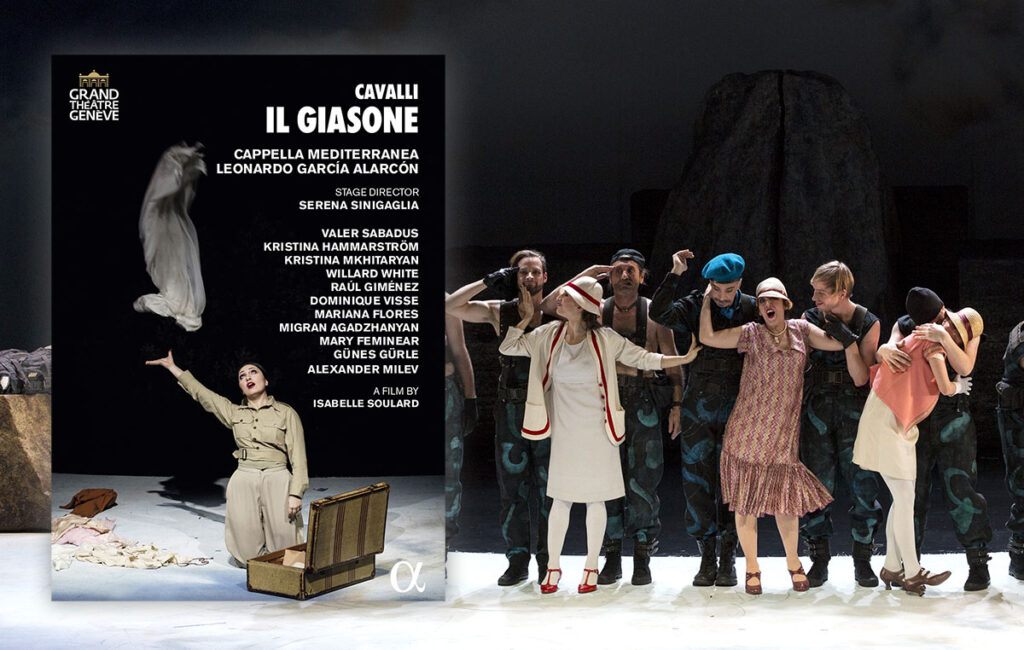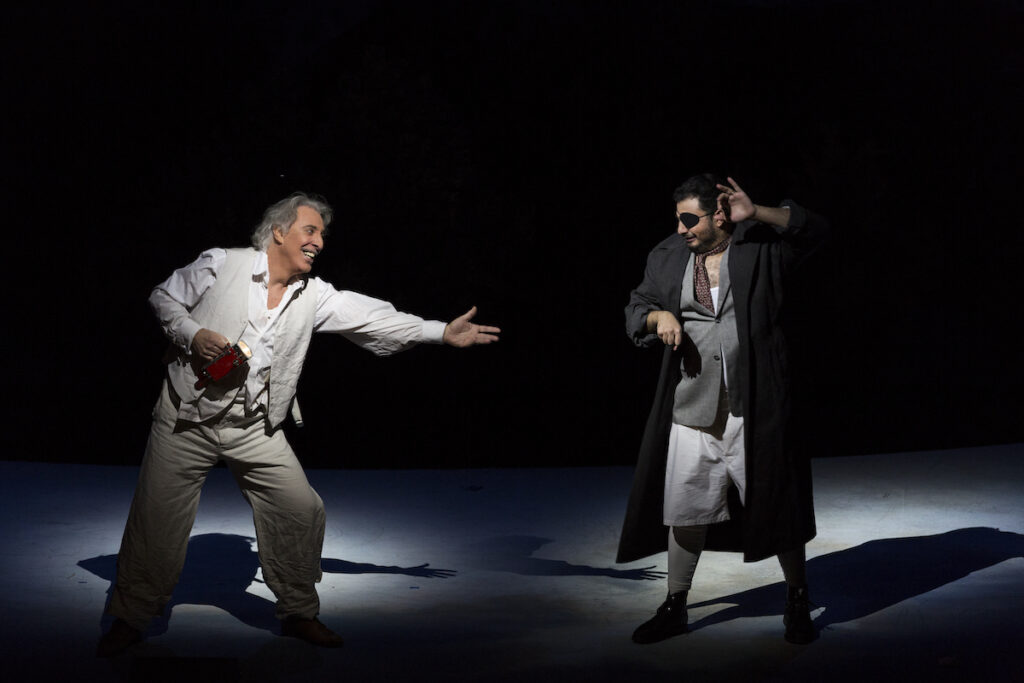


“This almost over-the-top production was risky, but it is pulled off masterfully with a rhythm that never falters and is firmly anchored in the libretto, which abounds in misunderstandings lasciviousness and unembellished impulses (Delfa, Dominique Visse’s lecherous nursemaid, deserves a prize). The central burlesque tone gives way to some fine emotional and poetic moments, including the ethereal scene where Medea and Jason sleep in the third act. […] In the pit, Leonardo Garcia Alarcón delights us once again, directing Capella Mediterranea with suppleness, richness and clarity. His production is exciting, free, abundant and colourful, with fluid recitatives full of wit and mischief.”
Philippe Carbonel for Concert Classique

“Cavalli’s theatre is a theatre of the senses. Cavalli is always attentive to the theatrical dimension of the work. Venetian opera is not a cantar recitando (as would be the case with opera seria), but a recitar cantando, which favours the lively, varied rhythm of theatre. In fact, a few years later, playwright Jacopo Cicognini adapted the libretto of Giasone into a comic drama in prose. Nevertheless, music still dialogues with the text and builds upon its emotional impact in the many lamenti (sung by Procri in Gli amori di Apollo e Dafne, Cassandra in Didone, Egisto in the opera of the same name, and Alessandro in Eliogabalo), invocations and scenes of fury (by Ericlea in Virtù dei strali d’amore, Medea in Giasone, and Nerea in La Rosinda) and mad scenes (in Egisto and Eritrea), an operatic topos that had a long future ahead of it. Cavalli’s music is incredibly supple and expressive, nestling in every nook and cranny of the text. Nevertheless, the musical discourse still has a certain autonomy. Cavalli treated some recitatives as arias and transformed closed poetic forms into simple recitatives, for example, in L’Orione (Milan, 1653). Cavalli’s music is reminiscent of the dreamlike prologue to Gli Amori d’Apollo, the first Baroque lyric masterpiece. It keeps the spectator captive in a dream throughout the whole performance. One could almost say that the Venetian composer succeeded in uncovering the deeper meaning of poetry, displaying the eloquence that was praised by Cicero. It’s up to the audience to decide.”
Jean-François Lattarico
In collaboration with Classicall TV_M Media.





